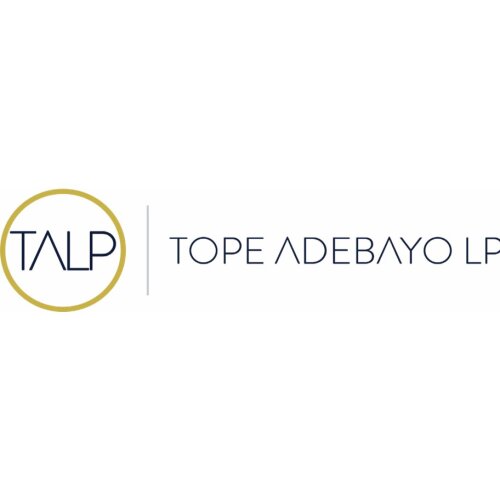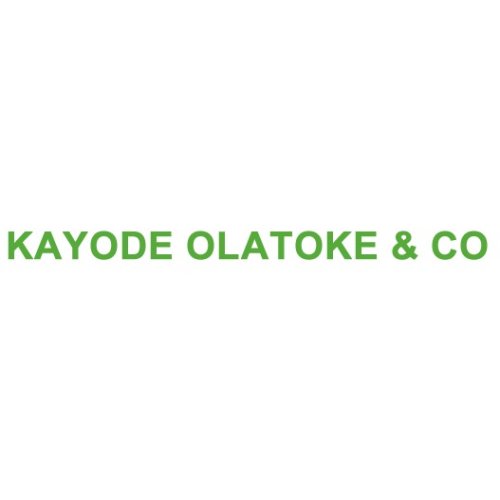Best Oil, Gas & Energy Lawyers in Nigeria
Share your needs with us, get contacted by law firms.
Free. Takes 2 min.
Or refine your search by selecting a city:
List of the best lawyers in Nigeria
Legal guides written by Adeola Oyinlade & Co:
- Procedure and Requirements for Work Permit and Visas in Nigeria
- The Step-By-Step Procedure of How to Apply for Microfinance Bank License Online in Nigeria
- How to Ensure the Smooth Recognition and Enforcement of Foreign Judgments in Nigeria
About Oil, Gas & Energy Law in Nigeria
The oil, gas, and energy sector in Nigeria is a critical component of the nation's economy, contributing significantly to its GDP and foreign exchange earnings. As one of the largest oil producers in Africa and a substantial player globally, Nigeria's oil and gas industry is complex and heavily regulated. The regulatory framework governing this sector includes laws related to exploration, production, distribution, and environmental protection. Given the sector's importance, the Nigerian government has continually revised its laws and policies to encourage foreign investment, ensure sustainable practices, and maximize local benefits.
Why You May Need a Lawyer
Engaging a lawyer in the oil, gas, and energy field is essential for various reasons:
- Contract Negotiation: Whether for exploration, production sharing, or supply agreements, legal expertise ensures favorable terms and compliance with Nigerian laws.
- Regulatory Compliance: Navigating through Nigeria’s complex regulatory environment requires a legal expert who understands local laws, licensing requirements, and fiscal terms.
- Dispute Resolution: Disputes may arise from contract breaches, environmental claims, or owner-operator disagreements, necessitating legal intervention.
- Environmental Compliance: With growing concerns about environmental impact and sustainability, legal guidance is essential for compliance with environmental laws and regulations.
- Mergers and Acquisitions: Legal assistance is crucial when dealing with transactions involving the sale or acquisition of interest in energy projects.
Local Laws Overview
Nigeria has a robust legal framework regulating the oil, gas, and energy sectors. Some key aspects include:
- Petroleum Industry Act (PIA): The PIA provides a comprehensive legal and regulatory framework for Nigerian petroleum operations, promoting transparency and attracting investments.
- Environmental Guidelines and Standards: Nigerian laws enforce stringent environmental standards to mitigate the impact of oil and gas operations on the environment.
- Licensing and Leases: Various licenses and leases are required for exploration and production activities, with specific terms and conditions stipulated by the Nigerian government.
- Local Content Law: The Nigerian Oil and Gas Industry Content Development Act mandates a significant portion of work to be executed by Nigerian companies and personnel.
- Taxation: The fiscal regime includes taxes like Petroleum Profits Tax and Value Added Tax, requiring adept understanding to manage implications effectively.
Frequently Asked Questions
What is the main regulatory body for oil and gas in Nigeria?
The main regulatory body is the Nigerian National Petroleum Corporation (NNPC), alongside the Department of Petroleum Resources (DPR) which handles operational aspects.
What is the Petroleum Industry Act?
The Petroleum Industry Act (PIA) is a legislation aimed at overhauling the oil and gas sector, improving governance and creating a more transparent legal framework.
How are oil and gas contracts negotiated in Nigeria?
Contracts are negotiated within the framework of Nigerian laws, often involving production sharing contracts or joint ventures with government participation.
What licenses are required to operate in Nigeria’s oil sector?
Key licenses include Oil Prospecting Licenses (OPL), Oil Mining Leases (OML), and Marginal Field licenses.
How is local content monitored in the energy sector?
The Nigerian Content Development and Monitoring Board (NCDMB) ensures compliance with local content laws, fostering Nigerian participation in the industry.
What are the environmental obligations for oil companies in Nigeria?
Companies must adhere to federal and state environmental protection laws, including periodic environmental audits and impact assessments.
How can disputes in the energy sector be resolved?
Dispute resolution mechanisms include arbitration, litigation, and alternative dispute resolution techniques, often stipulated in contracts.
What is the role of indigenous companies in the oil and gas sector under local content requirements?
Indigenous companies are encouraged to participate in oil and gas operations, receiving preferential treatment under the local content framework.
Are there any incentives for renewable energy investments in Nigeria?
Yes, the Nigerian government provides incentives such as tax holidays, duty waivers, and capital allowances to promote renewable energy development.
What should foreign investors consider when entering Nigeria’s energy sector?
Foreign investors should consider regulatory compliance, local content requirements, potential geopolitical risks, and engage local legal expertise for smooth operations.
Additional Resources
For further guidance and resources related to the oil, gas, and energy sector in Nigeria, consider reaching out to:
- Nigerian National Petroleum Corporation (NNPC): The main body overseeing petroleum activities in Nigeria.
- Department of Petroleum Resources (DPR): Responsible for the regulation of oil and gas operations.
- Nigerian Content Development and Monitoring Board (NCDMB): Oversees compliance with local content laws.
- Federal Ministry of Power: Governs renewable energy and electricity regulation.
- Energy Commission of Nigeria: Promotes coherent energy policy and strategy for sustainable energy development.
Next Steps
If you require legal assistance in the oil, gas, and energy sector, follow these steps:
- Identify your specific legal needs, whether it's contract negotiation, compliance, or dispute resolution.
- Research and select experienced and knowledgeable lawyers or law firms specializing in oil, gas, and energy law.
- Schedule consultations to discuss your case and determine the best legal strategy.
- Engage a lawyer who understands the local regulatory framework and has a track record of successful legal representations in the energy sector.
Lawzana helps you find the best lawyers and law firms in Nigeria through a curated and pre-screened list of qualified legal professionals. Our platform offers rankings and detailed profiles of attorneys and law firms, allowing you to compare based on practice areas, including Oil, Gas & Energy, experience, and client feedback.
Each profile includes a description of the firm's areas of practice, client reviews, team members and partners, year of establishment, spoken languages, office locations, contact information, social media presence, and any published articles or resources. Most firms on our platform speak English and are experienced in both local and international legal matters.
Get a quote from top-rated law firms in Nigeria — quickly, securely, and without unnecessary hassle.
Disclaimer:
The information provided on this page is for general informational purposes only and does not constitute legal advice. While we strive to ensure the accuracy and relevance of the content, legal information may change over time, and interpretations of the law can vary. You should always consult with a qualified legal professional for advice specific to your situation.
We disclaim all liability for actions taken or not taken based on the content of this page. If you believe any information is incorrect or outdated, please contact us, and we will review and update it where appropriate.
Browse oil, gas & energy law firms by city in Nigeria
Refine your search by selecting a city.

















